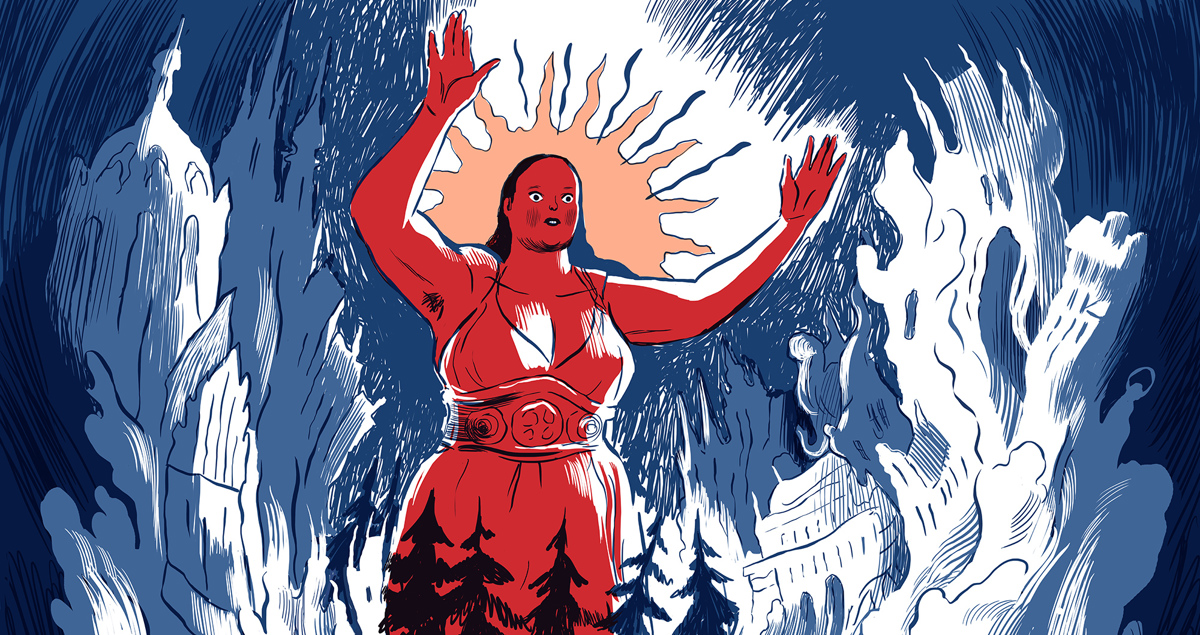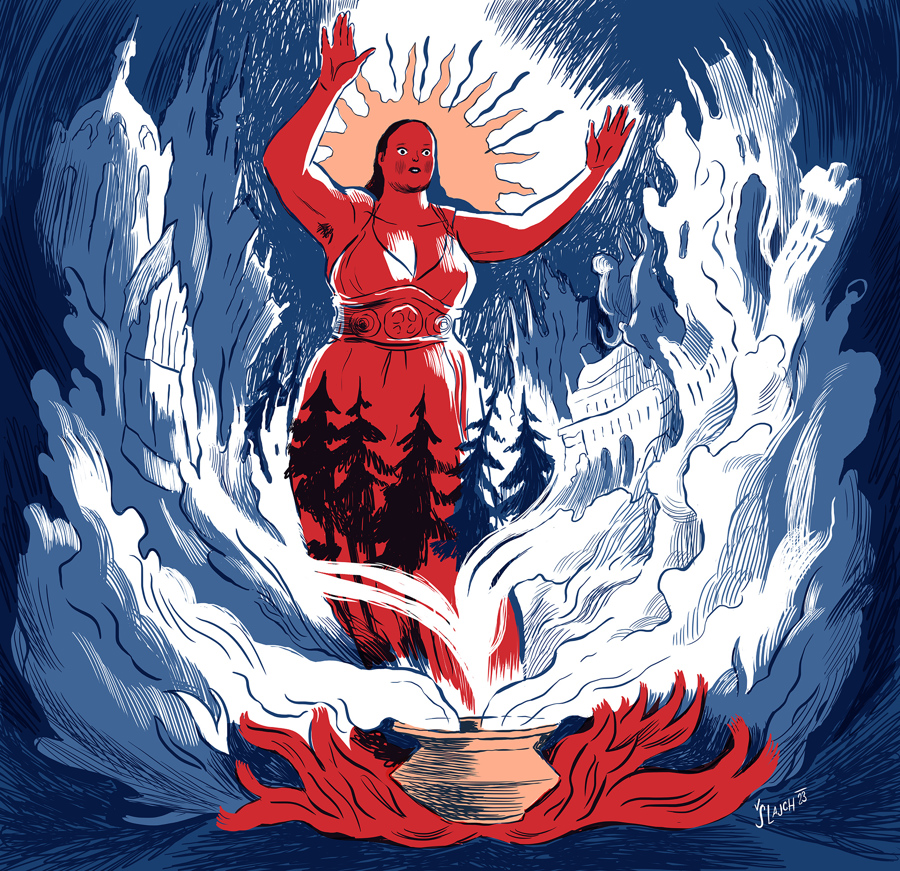
Prague
Le labyrinthe doré – une biographie de Prague
Loin là-bas, par-delà l’orbite de Mars, parmi les innombrables météores et planétoïdes de la ceinture d’astéroïdes, se trouve un rocher d’environ 70 kilomètres de diamètre, connu des astronomes sous le nom de 264 Libussa. L’astéroïde fut baptisé en l’honneur de la légendaire reine sorcière de Bohème, dont on raconte qu’elle fonda la ville de Prague.
Libussa, d’après les récits, possédait non seulement une intelligence peu commune, mais également le don de prescience. Ses exploits furent décrits pour la première fois dans des chroniques rédigées il y a plus de mille ans. Un jour, peut-on y lire, la reine Libussa se tenait sur le bord d’une falaise, les yeux fixés sur la rivière Vltava et les forêts s’étendant à l’horizon, lorsque ses courtisans s’aperçurent qu’elle manquait de souffle et que son regard se faisait vitreux et rêveur. Ouvrant grand les bras pour embrasser la nature s’étendant devant elle, Libussa avait donné vie à la prophétie qui lui tenaillait l’intérieur : « Je vois une grande cité. Sa gloire atteindra les étoiles. »
Puis, se tournant vers sa cour, elle avait ajouté : « Dans la forêt en contrebas se trouve une clairière. Là, vous ferez la rencontre d’un homme qui sait faire bon usage de ses dents à midi tapant. Voilà l’endroit précis où cette ville sera érigée. »
Les courtisans descendirent dans la vallée et là, dans une clairière, ils tombèrent sur des hommes en train de construire une maison. Comme il était midi, tous les travailleurs mangeaient leur dîner. Tous, sauf un, qui était toujours à l’ouvrage, à scier un gros morceau de bois.
Ils avaient trouvé leur homme.
« Que construisez-vous? » lui demandèrent-ils.
« Un seuil, leur répondit-il. Le seuil d’une maison. »
Ou prah en tchèque.
Et c’est ainsi que la ville qu’on érigea à cet endroit fut nommée Praha, Prag, Prague.
Richard Fidler

Zlatý labyrint – životopis Prahy
Kdesi za oběžnou dráhou Marsu, mezi nesčetnými balvany a planetkami pásu asteroidů, se nachází skála o šířce zhruba sedmdesát kilometrů, kterou astronomové znají pod označením 264 Libussa. Tento asteroid byl pojmenován po legendární kněžně a vědmě, která údajně založila město Prahu.
Libuše byla podle pověsti neobyčejně moudrá a obdařená darem proroctví. Její skutky byly poprvé zaznamenány v kronice napsané před tisíci lety. Kněžna Libuše prý jednoho dne stála na okraji strmého skalního výběžku a shlížela dolů na Vltavu a les, který se rozprostíral za ní, když tu si ti, kdo ji doprovázeli, všimli, že se jí krátí dech a oči má podivně zasněné. Libuše vztáhla ruce směrem k pusté, neobydlené krajině a vyslovila proroctví, které se v ní zrodilo: „Vidím město veliké. Jeho sláva hvězd se bude dotýkat.“
Obrátila se k svému doprovodu a pravila: „V lese pod námi je mýtina. Tam najdete muže, který za poledne svými zuby vykonává tu nejužitečnější činnost. Právě na tom místě bude toto město založeno.
Dvořané sestoupili do údolí a na mýtině našli několik mužů, kteří právě stavěli dům. Bylo poledne, a tak právě obědvali. Jeden z mužů však stále pracoval – řezal pilou kus dřeva.
Dvořané nalezli muže, kterého hledali.
„Co to děláš?“ otázali se ho.
„Práh,“ odpověděl jim. „Práh pro dům.“
A tak se městu, které tam vyrostlo, začalo říkat Praha.
Richard Fidler
The Golden Maze – A Biography of Prague
Somewhere beyond the orbit of Mars, among the countless boulders and planetoids of the asteroid belt, lies a rock around 70 kilometres wide, known by astronomers as 264 Libussa. The asteroid was named after the legendary witch queen of Bohemia, who was said to have founded the city of Prague.
Libussa, according to the legend, was uncommonly wise and blessed with the gift of prophecy. Her exploits were first recorded in a chronicle written a thousand years ago. One day, it was said, Queen Libussa stood on the edge of a steep cliff looking down at the Vltava River and the forest beyond when her attendants saw that she was short of breath and that her eyes had become unfocused and glassy. Stretching her arms towards the wilderness, Libussa gave voice to the prophecy welling up from within: “I see a great city. Its glory will touch the stars.”
Turning to her attendants, she said, “In the forest below there is a clearing. There you will find a man making the best use of his teeth at midday. That is the place where this city will be founded.”
The courtiers went down into the valley, and in a clearing they found some men in the process of building a house. It was midday and so they were eating their lunch. One of the men, however, was still at work, sawing a block of wood.
The courtiers had found their man.
“What are you making?” they asked.
“A threshold,” he replied. “A threshold for a house.” A prah in the Czech language.
Which is how the city that grew from that spot came to be known as Praha, Prag or Prague.
Richard Fidler
